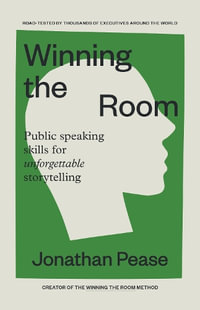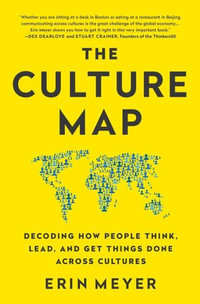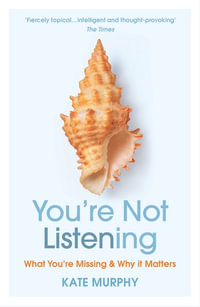Organizations, which are central in contemporary industrialized and post-industrial societies, including government departments and agencies, corporations, and non-government organizations, claim to want and practice two-way communication, dialogue, and engagement with citizens, customers, employees, and other stakeholders and publics. But do they in reality? Voice - speaking up - is recognized as fundamental for democracy, representation, and social equity. But what if governments, corporations, institutions, and NGOs are not listening? This book reports the findings of a two-year, three-continent study that show that public and private sector organizations devote substantial and sometimes massive resources to construct an 'architecture of speaking' through advertising, PR, and other public communication practices, but listen poorly, sporadically, and sometimes not at all. Beyond identifying a 'crisis of listening' in modern societies, this landmark study proposes and describes how organizations need to create an architecture of listening to regain trust and re-engage people whose voices are unheard or ignored. It presents a compelling case to show that urgent attention to organizational listening is essential for maintaining healthy democracy, organization legitimacy, business sustainability, and social equity. This research is essential reading for all scholars, students, and practitioners involved in politics; government, corporate, marketing, and organizational communication; public relations; and all those interested in democratic participation, media, and society.
Industry Reviews
Something is seriously missing in democratic practice, and recently some scholars have realized that something is missing in research about society and politics too: an attention to the practices of listening. No scholar is bolder here than Jim Macnamara. In this ground-breaking new book, he relentlessly exposes the inattention to listening across several literatures, and presents rigorous comparative fieldwork to show that corporations, governments, and civil society organizations must invest and do much more if they are to listen effectively. His book is a wake-up call for anyone who seeks practical ways to address the growing democratic deficit.
(Nick Couldry, London School of Economics and Political Science)
In this deeply original and empirically rich book, Jim Macnamara has expanded our understanding of what it means to communicate. He has reminded us of the vital difference between rhetorical claims to 'listen to the people' and the sensitive cultural prerequisites of meaningful listening.
(Stephen Coleman, University of Leeds)
This is a long overdue and important contribution to the communication and public relations literature. Like all brilliant ideas you wonder why you hadn't thought of it because it seems so obvious. Of course listening is vitally important and of course organizations should listen. So why has noone systematically researched how organizations listen ... and more importantly, if they do? Jim Macnamara has plugged this gap. The results of his extensive and meticulous research are stunning. Simply put, organizations don't really listen. So what's to be done? Helpfully Macnamara has also developed an architecture for listening which provides practical solutions to the problem. It's a must-read.
(Anne Gregory, University of Huddersfield)

























